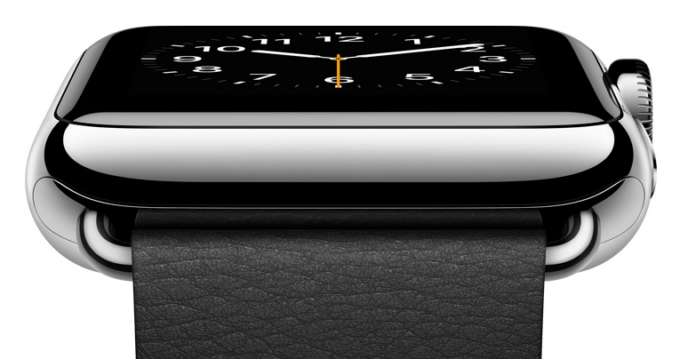The long-awaited Apple Watch is here and it’s … creepy.
As a technology columnist, I find myself looking at the pros and cons of new devices with a somewhat more objective mindset than many of my peers.
As the Apple Watch rolls out to much fanfare and the oohs and ahhs of the media and general public, I’m forced to ask what exactly is so great about the Watch, and, more specifically, what separates it and other wearables from our existing smartphones and tablets?
To this day I have yet to find someone who can give me an answer other than, “It does everything your iPhone does, but you can wear it too.” I am less than impressed.
Yes, the idea of wearables certainly has a nostalgic appeal for an older generation that grew up with the Dick Tracy radio watch.
Yet, the radio watch or any number of other wearable communication devices from popular culture were simple two-way communication devices similar to early cellphones.
These days, mobile phones hold more computing power than the lunar lander and they are constantly listening to their users: gathering browser data, watching our search habits, creating a digital record of all our communications and even recording the number of steps we take.
The fact that my smartphone is also a tiny corporate spy collecting massive amounts of data about me is unsettling enough, but with a smartphone there is a certain degree of separation.
I can leave it on my desk, turn it off, or forget about it in my pocket. Thus, even when it is actively monitoring me, I can at least pretend it isn’t.
Wearable technology grants no such luxury to its user because it is wearable – it functions best when worn constantly. The Apple Watch’s much touted ability to integrate with our other devices, and remind us of appointments via our calendar, give us e-mail alerts, or let us remotely program our DVR, only adds to the level of anxiety associated with its use.
That anxiety is compounded because of the potential of some corporate organization or government to gather the data constantly generated by a wearable’s user.
Corporations and governments, for all the villainous attributes often given to them by the public, are interested in narrow and understandable goals. For governments it’s the preservation of self through safety of the citizenry; for corporations it’s the preservation of self through profit.
Furthermore, both entities are bound by rules and ethics, and their own collective shortcomings. Hackers and other cyber criminals, on the other hand, are far more terrifying things.
Apple will no doubt claim its encryption is foolproof, but, sadly, every time the mouse catcher builds a better mousetrap, the mice go and drop an A-bomb on it. No network is impenetrable, and no person who is online is ever completely safe from hacking.
Having reviewed the shortcomings of wearables, I will now surrender to the point that I will someday be a user of the technology of which I have been so critical. I am after all a child of the 21st century and accept the fact that the world is becoming a more and more connected place.
Soon novel wearable technology will be standard fare the world over. However, as progress marches onward at a faster and faster pace, we can perhaps take time to reflect that progress for progresses sake isn’t always a good thing.
Jeff Hawn was born in 1991 and represents the “millennial generation,” the people who have spent their entire lives wired and wireless. His adult life has revolved around cellphones, the Internet, video chat and Google. Hawn has a degree in international relations from American University, and has lived and traveled extensively throughout Europe and Russia. He represents the most valuable, but most discerning, market for wireless companies: the people who have never lived without their products, but are fickle and flighty in their loyalty to one company or product. He’ll be sharing his views – and to a certain extent the views of his generation – with RCR Wireless News readers, hoping to bridge the generational divide and let the decision makers know what’s on the mind of this demographic.

